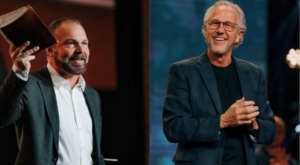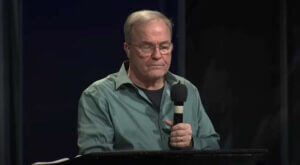Experts had said it couldn’t be done. The country wasn’t ready for microfinance. The poor wouldn’t repay loans. And the government was too corrupt.
But HOPE International, the organization I lead, saw the Democratic Republic of Congo as aligned with its mission to serve in challenging places.
Congo is known for its problems. Ranked the most difficult place in the world to do business for the past five years, it has hosted the most deadly war since World War II, waged in an effort to control vast natural resources. Called “the rape capital of the world,” it’s a country known for human trafficking and horrific violence against women.
And it’s a place that humbled me.
Fast Track to Success
Shortly after joining our organization, I traveled to Kinshasa, where I met the local staff. They had a vision for their country. They saw potential in the hardworking Congolese men and women. And they told me they knew we could make a difference.
We wanted to dream big. At the time, only one in a thousand Congolese had access to a bank. No other faith-based organizations were there to help entrepreneurs start small businesses through access to training and small loans. So we conducted market surveys to understand the needs of our potential clients.
I was there for the program’s launch and watched it grow from the ground up—and grow it did.
In August 2004, our team distributed its first loans. Over the next five years, we experienced dizzying growth. Clients were clamoring for our services. At one point we were adding 1,000 clients every month. By December 2008, we were serving almost 24,000 families in a country where everyone told us it could not be done.
I remember thinking, It’s really not that hard. We can actually do this!
Beyond that, lives were being changed. Entrepreneurs were expanding their businesses. Parents shared how, through increased income, they were able to pay for school fees. And many were returning to the church as they experienced uncommon care and concern from committed staff.
As we grew in the Congo, all our summary indicators pointed to health and vitality. In just five years, we were a true success story. I presented our accomplishments at microfinance conferences. The World Bank honored our success with a Pro-Poor Innovation award.
It was as if we could hear God telling us, “Whatever you have in mind, go ahead and do it, for the Lord is with you” (2 Sam. 7:3, NIV). We were making a difference. We had built an amazing program from nothing in one of the most challenging places in the world.
But we were only a few steps away from discovering fraud, closing branches, laying off staff and facing a humbling restart of the program.
Rude Awakening
After five years of success, we became painfully aware that we had failed to build a solid foundation.
Driven by a desire to have even greater impact, we (1) expanded beyond our capacity, (2) hadn’t developed all the necessary internal controls and (3) trusted individuals without appropriate checks and balances. We were not built to last. Closing branches and refocusing our efforts, we dismissed more than 100 staff.
It wasn’t just about our ministry; it was also about me. I was devastated. I had found a huge piece of my personal and organizational identity in the success of this program. I had enjoyed being able to say to the naysayers, “Microfinance can succeed anywhere, even in the most difficult corners of the world. Just look at us!”
Going to Washington, D.C., and presenting on our work, I had created a PowerPoint presentation outlining 10 steps to implement microfinance in hard places. I previously had all of the answers.
Not so much anymore.
What happened? Over the next few years, we explored this question extensively, and what we learned has profoundly changed me. Key operational lessons were learned, but the primary danger wasn’t the rapid growth, the failure to adequately plan or even program leadership.
The primary danger was the state of our hearts.
Gateway Sin
Jim Collins, best-selling author of How the Mighty Fall, says the first stage of a company’s decline isn’t an external factor but an internal attitude: hubris.
See an error in this article?
To contact us or to submit an article



















